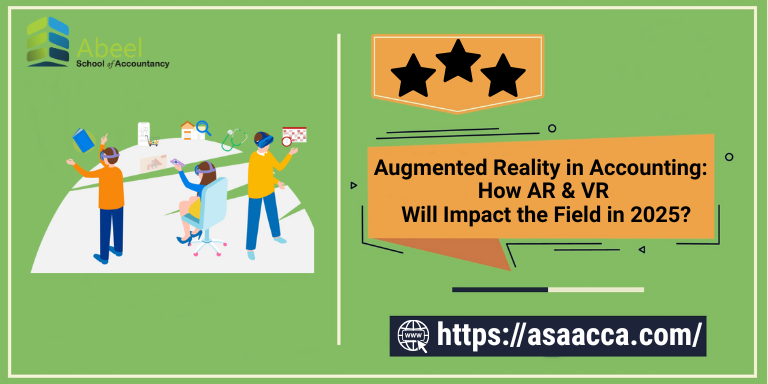In 2025, augmented reality in accounting and virtual reality (VR) are moving from concept to practice. Firms are experimenting with immersive dashboards, AR overlays on ledgers, and remote audits that reduce travel needs in pilot projects.
Teams can explore multi-entity consolidations in 3D, stress-test cash flows through scenario rooms, and train in VR modules that early studies suggest improve engagement and retention. When combined with ERP systems and process automation, these mesmeric tools may help tighten controls, reduce close cycles, and sharpen margin analysis. The most compelling shifts are only beginning to unfold.
Immersive Financial Data Visualization
Immersive technologies transform how financial information is viewed and understood. Instead of static spreadsheets, accountants can interact with dynamic 3D models that reveal patterns at a glance. This allows professionals to interrogate anomalies, drill into cost drivers, and trace cash flows more intuitively.
Key advantages include:
- 3D modeling to clarify multi-entity consolidations, segment margins, and variance waterfalls.
- Heat-mapped revenue cohorts that quickly highlight churn or lifetime value shifts.
- Scenario views with sensitivity sliders to test forecasts and quantify risk bands.
- Augmented reality in accounting that overlays KPIs on physical dashboards, reducing interpretation errors.
Results reported in pilots:
- Faster analysis cycles (sometimes 30% quicker).
- Reduced errors when guided visuals highlight anomalies.
- Stronger stakeholder narratives grounded in transparent evidence.
Virtual Collaboration and Remote Auditing
With VR, the audit room can exist inside a headset. Early trials suggest that virtual walkthroughs, inventory counts, and controls testing can be carried out securely without everyone being physically present.
Practical shifts include:
- Remote teamwork: Firms assemble cross-border teams instantly, cutting travel significantly and shortening audit cycles in pilots.
- Remote auditing: AR markers allow auditors to inspect warehouses, reconcile tags to ERP systems, and escalate exceptions in real time.
- Governance and quality: Encrypted rooms maintain PBC lists, version control, and independence rules. Digital assistants flag unusual items to support defensible, efficient engagements.
Training, Certification, and Skill Development in VR
As virtual audit rooms spread, firms are retraining staff to operate effectively in immersive environments.
Core elements:
- Virtual simulations for walkthroughs, controls testing, and evidence review.
- Interactive learning modules that reinforce standards like GAAS, SOX, and ISA.
- Micro-credentials to certify VR proficiency—covering environment setup, documentation, and privacy compliance.
Benefits observed in related training fields:
- VR modules can increase practice frequency and speed up learning curves.
- Learners often show 20–40% higher retention compared to traditional methods.
- Proctored VR exams measure error rates and consistency across scenarios.
Micro-credentials to certify VR proficiency—covering environment setup, documentation, and privacy compliance. If you’re planning to build your career with ACCA and want structured guidance, you can start your ACCA journey with Abeel School of Accountancy.
Decision-Making and Scenario Planning With AR/VR
Even before numbers hit the ledger, AR and VR help finance teams rehearse decisions inside simulations. This reduces blind spots and builds consensus more quickly.
Use cases include:
- Scenario walkthroughs where teams adjust pricing, FX, and tax drivers to see ripple effects across cash flow and EBITDA.
- 3D probability views (Monte Carlo style) that make risk bands easier to interpret.
- Interactive dashboards to compare base, upside, and downside cases.
- Immersive briefings that clarify trade-offs, shortening approval cycles.
Early adopters report:
- Planning cycles up to 15–25% faster.
- Fewer revisions required to reach alignment.
Automation, Accuracy, and Workflow Integration
Automation has long supported accounting, but AR/VR can integrate it more deeply. By linking immersive views with automation engines and reconciliations, firms may see both speed and quality gains.
Reported benefits:
- Exception handling guided by VR tools can reduce close cycles.
- Visual spatial flags help identify irregularities quickly, lowering error rates.
- AR overlays streamline approvals, route controls, and synchronize ERP entries.
- APIs connect VR dashboards to ledgers and tax engines, ensuring traceability.
Frequently Asked Questions
Q1: What are the upfront and ongoing costs of AR/VR adoption?
Upfront costs include headsets, compatible workstations, licenses, integration, and security hardening. Ongoing costs cover updates, device refreshes, training, bandwidth, and compliance audits.
Q2: How will AR/VR comply with privacy and security requirements?
By using end-to-end encryption, identity governance, zero-trust segmentation, and regular compliance audits.
Q3: What accessibility accommodations exist?
Comfort settings, seated modes, horizon locks, captions, voice control, haptics, and eye-tracking improve inclusivity.
Q4: How will AR/VR affect client engagement and pricing?
Clients may expect immersive presentations and real-time scenario modeling. Pricing models could shift toward session-based or subscription tiers, rewarding insight and engagement quality rather than hours billed.
Q5: What hardware standards should firms plan for?
Most firms standardize on enterprise AR/VR platforms with cross-vendor compatibility, five-year refresh cycles, certified GPU baselines, warranty SLAs, and encrypted telemetry.
Conclusion
It is clear how AR VR will impact accounting field: immersive tools are transforming how professionals analyze data, collaborate, train, and make decisions. Augmented reality in accounting overlays reduce errors in real time, while VR turns complex data into clearer narratives. Visualization shortens analysis cycles, remote audits compress timelines, and immersive training accelerates competence. Integrated workflows improve accuracy, and scenario planning strengthens strategic decisions.
Accounting is not just evolving; it is entering a new era of immersion and interactivity. Those who adapt will gain faster closes, stronger controls, and a decisive career advantage.

